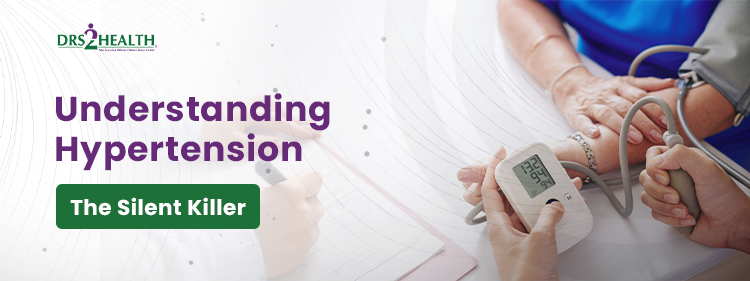
May 15, 2025
Food Allergies in Children and Adults: Signs, Testing, and Treatment Options.
347-843-0789
doctors@doctorstohealth.com

Hypertension, commonly known as high blood pressure, is a serious condition that affects millions of people worldwide. Often referred to as the “silent killer,” it typically presents no symptoms but can lead to severe complications if left untreated.
Hypertension occurs when the force of blood against the artery walls is consistently too high. Blood pressure is measured in two numbers:
–> Systolic pressure: The top number, representing the force when the heart beats.
–> Diastolic pressure: The bottom number, showing the pressure when the heart rests between beats.
A normal blood pressure reading is around 120/80 mmHg. If readings consistently exceed 130/80 mmHg, it is considered hypertension.
Several factors can contribute to high blood pressure, including:
–> Genetics – Family history plays a role.
–> Diet – High salt, fat, and cholesterol intake can elevate blood pressure.
–> Lack of Exercise – A sedentary lifestyle contributes to hypertension.
–> Obesity – Extra weight increases strain on the heart.
–> Stress – Chronic stress can lead to elevated blood pressure.
–> Smoking & Alcohol Consumption – Both can damage arteries and raise blood pressure.
Uncontrolled hypertension can result in severe health issues, such as:
–> Heart disease and heart attacks
–> Stroke
–> Kidney damage
–> Vision loss
–> Cognitive decline
Managing hypertension requires lifestyle changes and, in some cases, medication. Here are effective ways to keep your blood pressure in check:
–> Healthy Diet – Eat more fruits, vegetables, whole grains, and lean proteins while reducing salt and processed foods.
–> Regular Exercise – Engage in at least 30 minutes of physical activity most days of the week.
–> Maintain a Healthy Weight – Losing even a small amount of weight can help.
–> Reduce Stress – Practice relaxation techniques like meditation, deep breathing, or yoga.
–> Limit Alcohol & Quit Smoking – Reducing alcohol intake and quitting smoking can improve overall cardiovascular health.
–> Monitor Your Blood Pressure – Regular check-ups can help track progress and prevent complications.
Hypertension is a manageable condition, but it requires commitment to lifestyle adjustments and medical guidance. By taking proactive steps, you can significantly lower your risk of serious health complications and lead a healthier life. If you suspect you have high blood pressure, consult a healthcare professional for proper evaluation and treatment.

Leave a comment